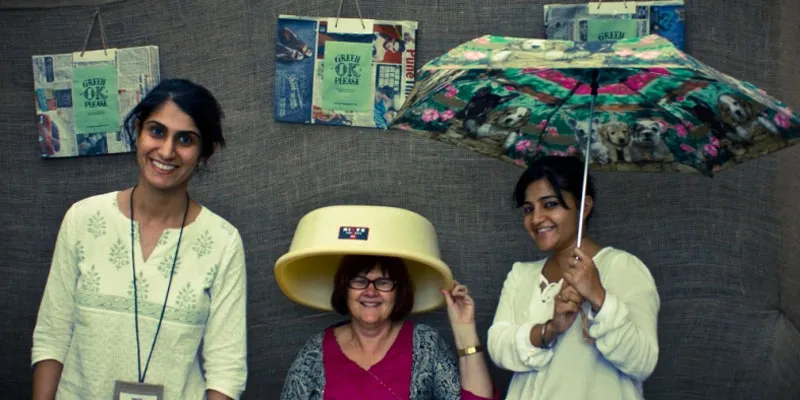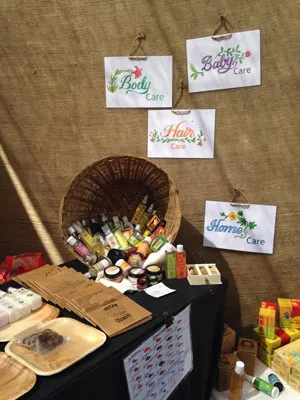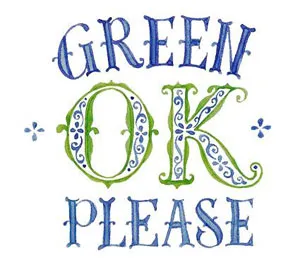Buy health and green with Shweta Foulger and Rashi Goel: The Green Ok Please story
Shweta Foulger and Rashi Goel have a lot in common. They are not just close friends from Pune with successful professional stints behind them, but they have travelled extensively, and are passionate about the same thing – healthy living.
It seems natural that the two came together to live their passion by starting Greenokplease.com. Green OK Please promotes organic, eco-friendly products that are sourced from local, small and marginal producers and sold through the online store.

The seed of Green OK Please was sown in 2010. It started as a knowledge resource -- a blog. Shweta alone ran www.greenokplease.org for over two years as her solution to the environmental challenges primarily experienced in Pune. The blog soon made her a facilitator. People began to contact her and ask for solutions on various topics -- from home composting to rainwater harvesting.
Among her friends, she became the go-to person for any environmental concerns. This was when Rashi planted the idea of making Green OK Please a social business that would promote and sell Indian products which have a lower environmental impact and give better and healthier options for people living in India through education and products. Shweta says, “It only made sense to work in the area that we are both so interested in. As someone rightly said, ‘Choose a job you love, and you will never have to work a day in your life.’ ”
“We’re now a completely running e-commerce website which compliments an educational blog. Our e-commerce website www.greenokplease.com went live on 15th Dec, 2013. Prior to the festive season, we also explored friends and family as potential clients for gifting green on Diwali and came to see this as a great way to spread awareness while also growing our funds. We then decided to add corporate gifting as our third revenue stream,” adds Shweta. The other two revenue streams are selling through the platform and stalls at events.

Both believe that the crux of their business model lies in bringing the offline and online market together. “We intend on making our customers more familiar with the concept of green washing and arming them with the knowledge they need to make an informed decision about the products they consume. This alone will make us stand out in the crowd and we have faith that it is what will help us scale.”
According to the two, excitement and drive comes from all quarters. “We still remember our first online customer whom we didn’t know personally, an employee with Infosys in Bangalore, who had come across our website while searching for organic products online. It was such a great feeling when he called us to say that he had received his order well in time and was extremely happy with our service and that he would spread the word among all his colleagues. So really for us it boils down to having a good number of happy customers as compared to having an enormous number of just customers.”
Without any marketing, SEO and other efforts, Green Ok Please site is seeing a steady flow of customers. “We are concentrating on getting things right, from procuring, online experience, customer engagement to end delivery. It started with one customer a day but now we are seeing a growth which has been fuelled by word of mouth.”

Quiz them on what has been the learning so far and pat comes the reply, “It’s a constant learning process and every day is new and opens new opportunities. If you ask us to nail our learnings, we would say invest wisely, remove ‘I’ from the business think, brainstorm and be organized.”
Organic market in India
According to a YES Bank report in 2012, organic market in India was estimated at Rs 1,000 crore ($170 million) of which Rs 700 crore came from exports. The market is growing at 30 to 40 percent annually. The country has 4.43 million hectare under organic cultivation with a total organic certified production of 171,100 tonne. In comparison, the US organic foods market is worth $26 billion, and the European market is $10 billion. At present, India ranks last among the top 10 countries in terms of cultivable land that is under organic certification. Some reports indicate that organic cosmetics, fabrics, and foods are also seeing a huge upsurge in domestic demand. It’s a space to watch out for, though it will be interesting to see if niche e-commerce players in this space can create a significant market share for themselves.







